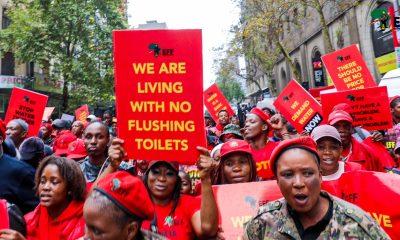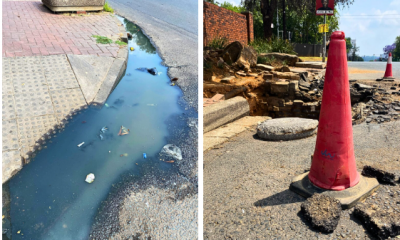411
Water Disruptions in Joburg Hit Landlords Hard: Rising Costs and Tenant Relief Efforts

Johannesburg’s ongoing water supply challenges are creating significant financial strain for landlords, as they work to mitigate the impact on tenants while absorbing additional costs.
Water shortages have become a persistent issue in the city, compelling property owners to invest in extended backup water systems and other costly solutions to maintain livable conditions for tenants.
Landlords Bear the Financial Brunt
As water disruptions grow longer and more frequent, many landlords are increasing their backup water storage capacity from two days’ supply to three days or more. This adjustment comes at a considerable expense, as they purchase larger storage tanks, install advanced water pumping systems, and pay for regular refills when municipal supply falls short.
The costs of these upgrades are rarely passed directly to tenants, leaving landlords to shoulder the financial burden.
Balancing Tenant Needs and Rising Expenses
Maintaining tenant satisfaction is a priority for most landlords, particularly in competitive rental markets. Many landlords have implemented creative solutions, such as:
- Providing alternative water sources during peak disruptions.
- Adjusting lease terms to accommodate for ongoing challenges.
- Investing in communication tools to keep tenants informed about water availability.
However, these efforts to preserve tenant relationships further erode property owners’ profit margins.
Broader Implications for the Property Market
Johannesburg’s water crisis is not just a short-term inconvenience—it has potential long-term implications for the property market:
- Decreased Property Value: Persistent water shortages may lower property appeal, particularly for homes or buildings without robust backup systems.
- Increased Maintenance Costs: Infrastructure damage caused by inconsistent water supply, such as burst pipes or tank corrosion, adds to landlords’ expenses.
- Higher Rental Turnover: Frustrated tenants may seek alternative accommodations, increasing vacancy rates.
The Call for Government Intervention
Property owners and tenant advocacy groups are urging the government to address the root causes of water supply disruptions. Proposed solutions include:
- Accelerating infrastructure repairs and upgrades.
- Improving communication and planning around scheduled outages.
- Expanding water storage facilities at the municipal level to reduce the burden on individual landlords.
Without significant intervention, the water crisis threatens to destabilize Johannesburg’s property market further.
Landlords Under Pressure Amid Joburg Water Crisis
The prolonged water disruptions in Johannesburg are a stark reminder of the city’s aging infrastructure and the challenges it poses to property owners. While landlords strive to provide tenants with uninterrupted water supply, the rising costs and operational strain are unsustainable in the long term.
Resolving this crisis will require collaboration between landlords, tenants, and local government to ensure equitable solutions and a more resilient infrastructure for the future.
Follow Joburg ETC on Facebook, Twitter , TikTok and Instagram
For more News in Johannesburg, visit joburgetc.com





















